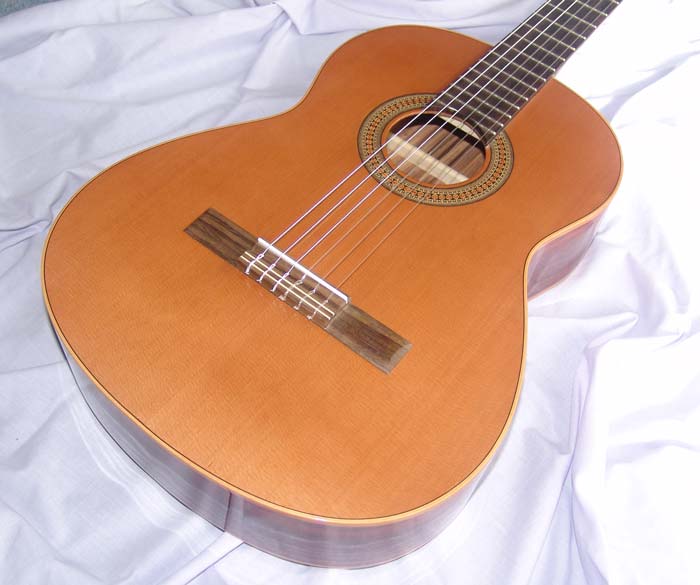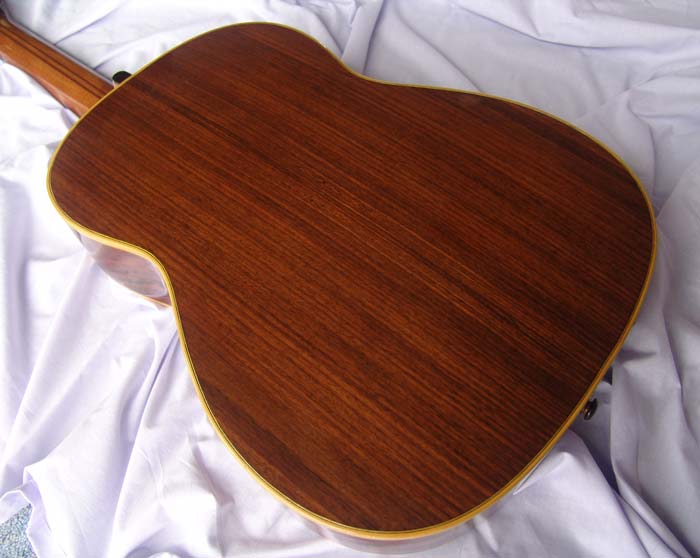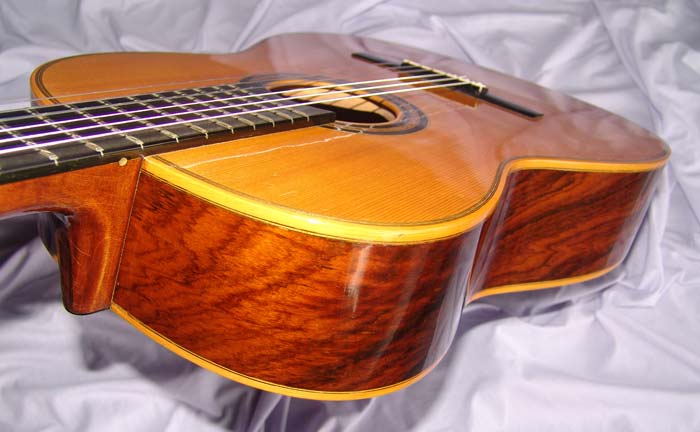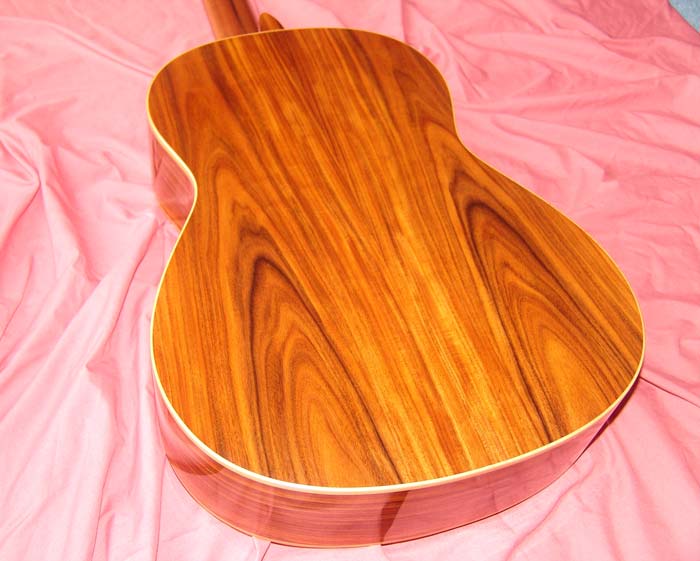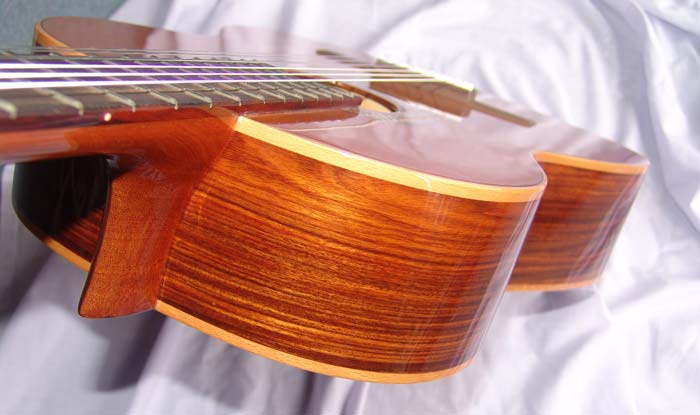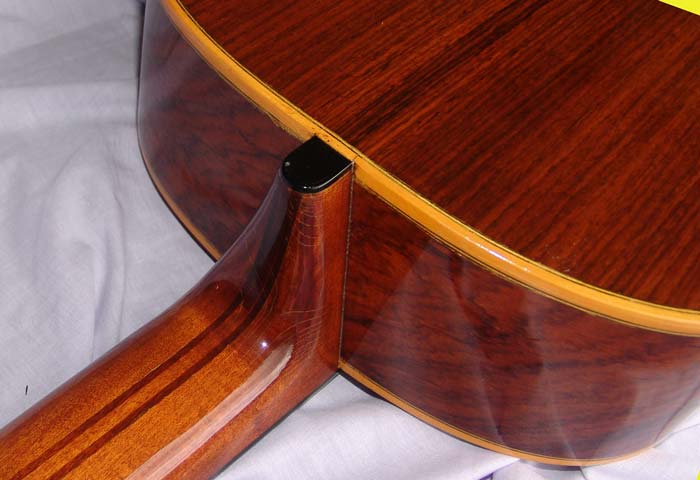TWO HOFNER CLASSICAL GUITARS - ANCIENT & MODERN
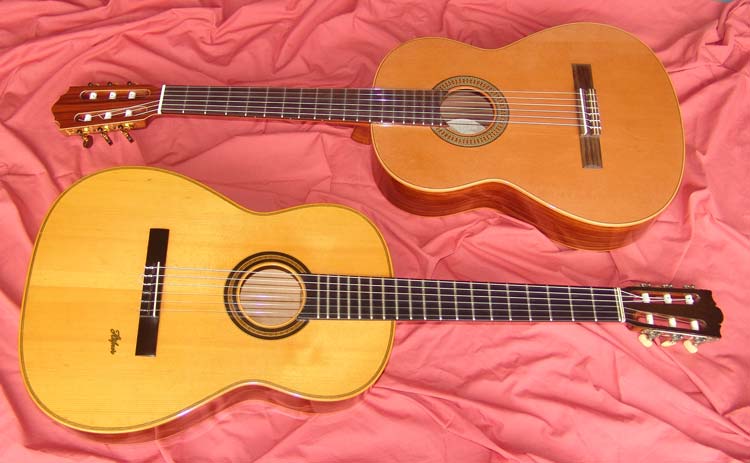
I am definitely not a classical guitarist, but...........I do own
two beautiful Hofner classicals. One is a 1958 Hofner 497 model (the lower one in the above picture), and
the other is a 2005 Hofner HZ27 (the top one in the picture) which is still actually in the current
Hofner catalogue. Both are mid/higher range guitars which have lovely
rosewood body back and sides although different body tops, but are
separated by nearly 50 years! I therefore thought that it would be
worth putting the two together on a webpage for comparison purposes.
BODY TOPS
THE HOFNER 497:
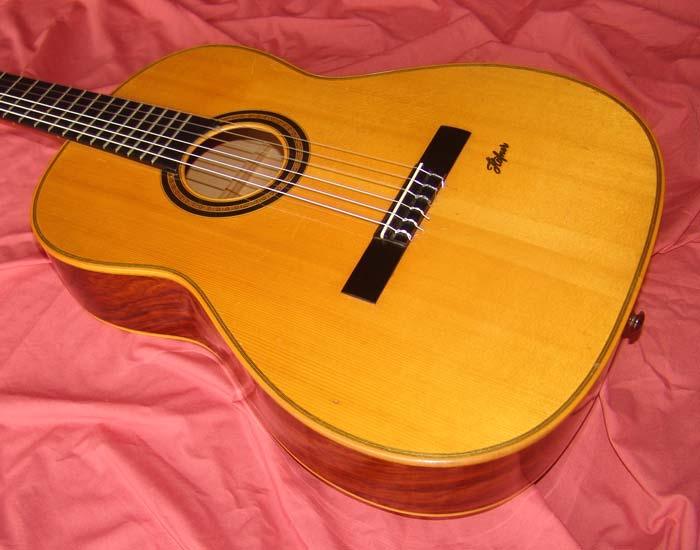
The old 497 has what I believe to be a solid spruce top, although this
is described in the contemporary catalogues as "carefully selected high
quality wood"! The body is bound with beech
binding around both the top and back. Twin black (ebony wood?) strips of purfling
on the top and a single one around the sides completes the edge
treatment. An attractive genuine wooden mosaic rosette and a beautiful ebony bridge
complete the picture.
By the way, as with many other old archtop and flattop Hofners, a date
has been written in pencil under the body top: " 20. IV 1958 ".
THE HOFNER HZ27:
The present-day Hofner HZ27 has a solid cedar top. I understand
that,
unlike a spruce top, using this type of timber does not require the
guitar to be "played-in" in order to achieve a fully developed tone.
Again the body sides are bound top and bottom using contrasting timber
strips, although the only contrasting black purfling is a single strip
on the body top. Is the sound-hole rosette a genuine wooden mosaic?
I'm not sure. The bridge is made from a nice piece of rosewood, which
rather shows-up the dull-looking rosewood timber used for the
fretboard. The whole guitar is finished in high-gloss cellulose.
All-in-all however, the old 497 just about wins the prize with regard
to looks and ornamentation.
BODY BACKS AND SIDES
THE HOFNER 497:
Just straight-forward parallel grained rosewood for the single piece
back of the 497, but the absolutely gorgeous rosewood sides look
even better in real life than in the above photo.
THE HOFNER HZ27:
A different approach has been taken with the HZ27. Hofner really
have made an effort with the back with superb looking, two-piece
bookmatched, cross-grained rosewood. In contrast to the 497, straighter
grained rosewood has been used on the sides.
THE NECKS & HEELS
HOFNER 497:
As with just about all mid to top range Hofner guitars (of all
types) from the 1950's and 60's, a five piece neck has been fitted to
the 497. This seems to be a maple neck with two mahogany strips. The
neck profile is deep, wide, and rather rectangular, which initially
feels very strange to an electric guitar player like myself. However, I
have just about got used to it, and I suppose that it is in keeping
with the style of guitar. The heel is also on the large side, and is
capped with a piece of black plastic, which does not fit in with the
standard of the rest of the guitar.
A very nice piece of ebony has been used for the fingerboard, and
side fret dots in mother-of-pearl are present at the 5th, 7th, 9th, and
12th frets. The frets themselves are very thick and made of brass. They
should last a lifetime!
HOFNER HZ27:
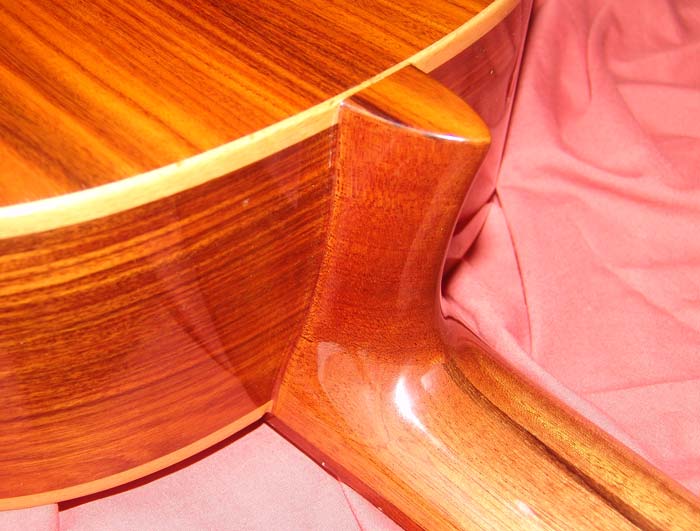
The new guitar has a three piece mahogany neck. The contrasting
center strip appears to be rosewood, which looks very attractive. It's
profile is nothing like as deep as the 497's, and hence seems easier to
play; certainly to myself. The heel is a pointed shape, and is capped
with a piece of rosewood laminate which is a nice touch.
The fingerboard is a rather dull-looking piece of rosewood, with
plastic side fret dots at the 5th, 7th, and 9th frets. The frets are of
of the thin variety; very different to those of the 497.
THE HEADSTOCKS
HOFNER 497:
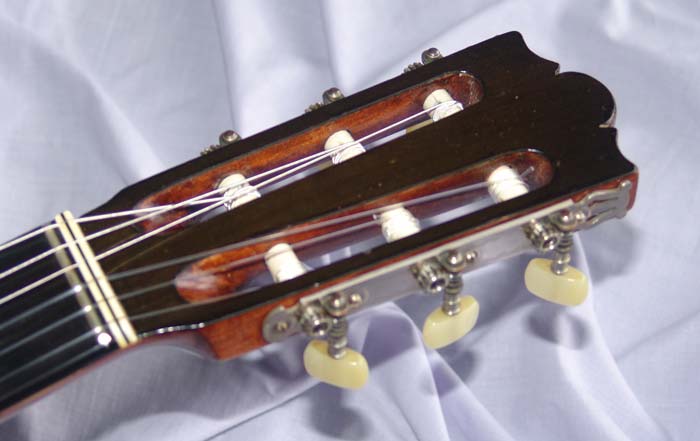
The nicely carved shape headstock
is faced with either a black ebony or holly wood veneer. The nickel
plated tuners have minor engraving, creamy white plastic buttons, and
look very much like those fitted to pre-1956 Presidents. After all
these years, they work well without slippage.
A zero-fret is fitted and the nut is three piece plastic, again similar to that fitted on the President.
HOFNER HZ27:
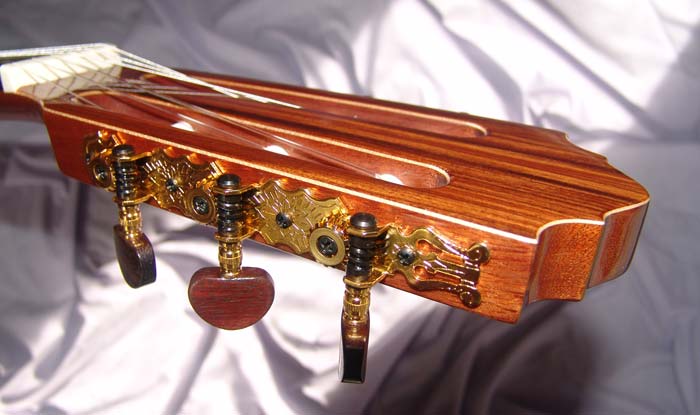
The front of the headstock is faced with beautiful rosewood
veneer, which really does look great on this guitar. Very ornate
3-on-a-side gold-plated tuners are fitted with rosewood buttons. These
work as well as they look, and are a credit to the guitar. Unlike the
497, no zero fret is fitted. The nut is one-piece plastic.
PLAYING & CONCLUSIONS
The two guitars have a very similar tone. However, the old 497 is
not quite as loud as the new upstart. It has a slightly more smooth and
a subtler tone than the HZ27, which seems to have a little more "bite".
Also, the HZ27 is stronger in the bass registers.
Both guitars have considerably higher actions than I am used to
playing, although they are classical guitars after all. The newer
guitar is definitely easier to play, with the shallower neck and thin
frets. However, I tend to stay towards the headstock end of the
fingerboard when playing either !
As far as looks are concerned, perhaps the old 497 wins the prize
because of its stunning rosewood sides, its classy body binding,
and ebony bridge/fingerboard. However, the new HZ27 is also a good
looking guitar and a very nice piece of traditional craftsmanship to
have lying about the house.
I have to say that these two lovely little guitars are a credit to the
Hofner Company, both past and present. As I made it clear above, I
am not a classical guitar player, but I do like to have one or other of
these beauties around in my living room so that I can have the
occasional half hour running through a few chords or scales; just to
be able to hear the lovely tones that they can produce. I suppose
I now understand where the term "parlour guitar" came from! A good
quality classical guitar makes the ideal parlour guitar in my opinion.
New German-made Hofner classicals seem to me to be sold at bargain
prices, and old Hofner classical guitars sell on Ebay for
next-to-nothing. From my experience with the above two
classicals, I can only recommend that you try a Hofner classical guitar
out............and soon, before the word gets around!
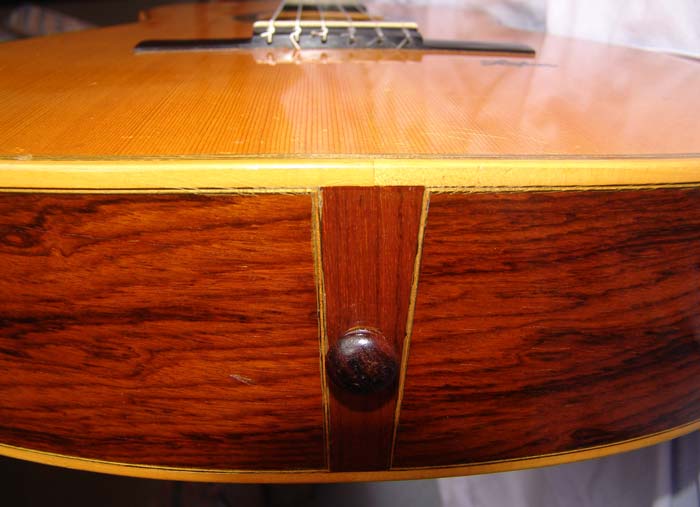 A nice detail on the 497.
A nice detail on the 497.



